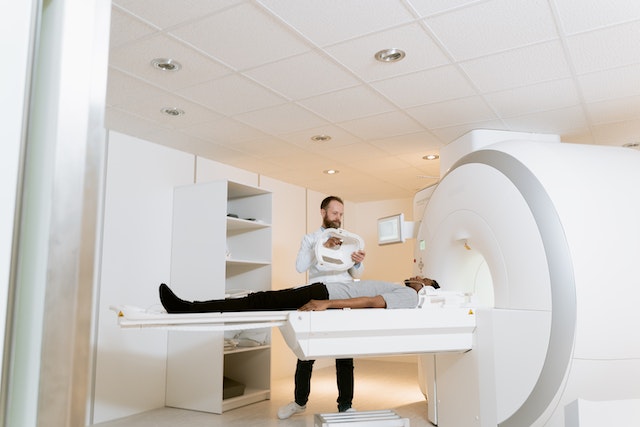In recent years, technology has made significant contributions to healthcare, transforming the way we diagnose, treat, and prevent diseases. From telemedicine to wearable devices, these advancements have revolutionized the field of medicine, making it more accessible, efficient, and personalized. Here are some ways technology is transforming healthcare.
Telemedicine: Virtual Care
Telemedicine, also known as virtual care or telehealth, is a way of delivering healthcare services remotely using technology. It has become increasingly popular, especially during the COVID-19 pandemic, as it allows patients to access medical care from the comfort of their homes. Telemedicine has made it possible for doctors to remotely diagnose and treat patients, prescribe medication, and monitor their progress. It has also made healthcare more accessible for people living in rural or remote areas, as well as those with mobility issues.
Electronic Health Records (EHRs)
Electronic Health Records (EHRs) have revolutionized the way healthcare providers store and manage patient information. EHRs allow healthcare providers to access and share patient data securely, making it easier to coordinate care and provide better patient outcomes. EHRs also reduce errors and duplication of services, resulting in cost savings and improved patient safety.
Wearable Devices and Mobile Health (mHealth) Apps
Wearable devices and mobile health (mHealth) apps have made it easier for people to track their health and fitness goals. These devices can monitor vital signs, such as heart rate, blood pressure, and oxygen levels, as well as track physical activity and sleep patterns. mHealth apps can also provide personalized recommendations based on this data, helping people to manage chronic conditions, such as diabetes and hypertension, and make healthier lifestyle choices.
Artificial Intelligence (AI) and Machine Learning (ML)
Artificial intelligence (AI) and machine learning (ML) have made it possible for healthcare providers to analyze large amounts of data quickly and accurately. This technology can help healthcare providers to predict patient outcomes, identify potential health risks, and personalize treatment plans. AI and ML can also automate routine tasks, freeing up healthcare providers to focus on more complex cases.
3D Printing
3D printing has revolutionized the way medical devices and prosthetics are made. It has made it possible to create customized implants, prosthetics, and surgical tools, improving patient outcomes and reducing the risk of complications. 3D printing has also made it possible to create models of organs and tissues, allowing doctors to practice complex surgeries and improve their precision.
Conclusion
Technology has transformed the way we think about healthcare, making it more accessible, efficient, and personalized. From telemedicine to wearable devices and artificial intelligence, these advancements have revolutionized the field of medicine, helping to improve patient outcomes and reduce healthcare costs. As technology continues to advance, we can expect to see even more innovative solutions that will transform healthcare as we know it.
